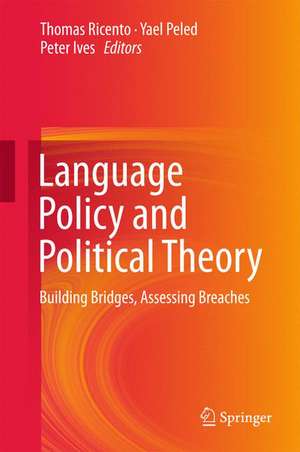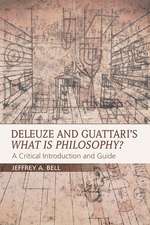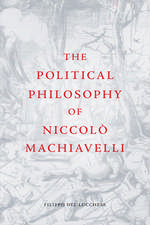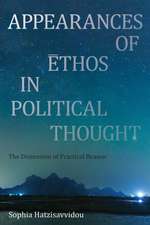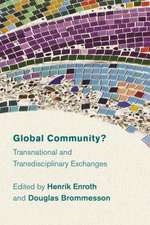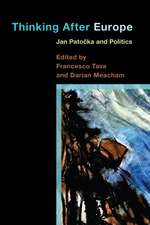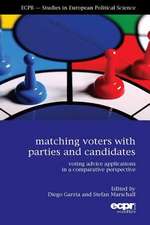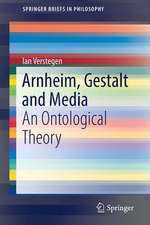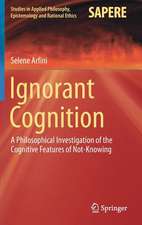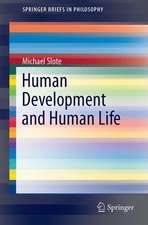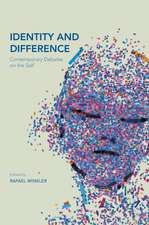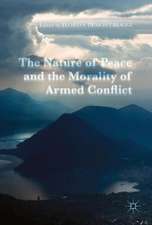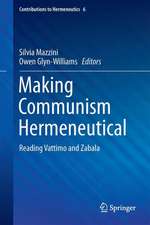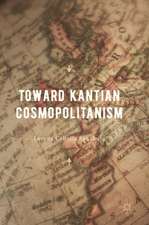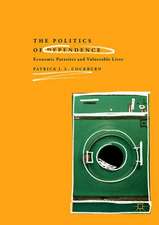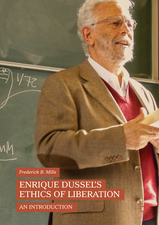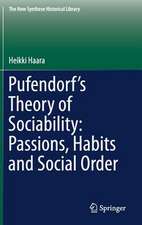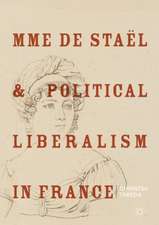Language Policy and Political Theory: Building Bridges, Assessing Breaches
Editat de Thomas Ricento, Yael Peled, Peter Ivesen Limba Engleză Hardback – 9 mar 2015
Previously published in Language Policy, Volume 13, Issue 4, 2014
| Toate formatele și edițiile | Preț | Express |
|---|---|---|
| Paperback (1) | 378.71 lei 6-8 săpt. | |
| Springer International Publishing – 5 oct 2016 | 378.71 lei 6-8 săpt. | |
| Hardback (1) | 385.84 lei 6-8 săpt. | |
| Springer International Publishing – 9 mar 2015 | 385.84 lei 6-8 săpt. |
Preț: 385.84 lei
Nou
Puncte Express: 579
Preț estimativ în valută:
73.84€ • 76.81$ • 60.96£
73.84€ • 76.81$ • 60.96£
Carte tipărită la comandă
Livrare economică 14-28 aprilie
Preluare comenzi: 021 569.72.76
Specificații
ISBN-13: 9783319150833
ISBN-10: 3319150839
Pagini: 121
Ilustrații: VII, 121 p.
Dimensiuni: 155 x 235 x 15 mm
Greutate: 0.36 kg
Ediția:2015
Editura: Springer International Publishing
Colecția Springer
Locul publicării:Cham, Switzerland
ISBN-10: 3319150839
Pagini: 121
Ilustrații: VII, 121 p.
Dimensiuni: 155 x 235 x 15 mm
Greutate: 0.36 kg
Ediția:2015
Editura: Springer International Publishing
Colecția Springer
Locul publicării:Cham, Switzerland
Public țintă
ResearchCuprins
Preface by Thomas Ricento, Yael Peled, Peter Ives.- Normative Language Policy: Interface and Interfences by Y. Peled.- The Complex Normative Foundations of Language Policy by D. Weinstock.- De-politicizing Language: Obstacles to Political Theory's Engagement with Language Policy by P. Ives.- Thinking about Language: What Political Theorists need to know about Language in the Real World by T. Ricento.- Contesting Public Monolingualism and Diglossia: Rethinking Political Theory and Language Policy for a Multilingual World by S. May.- Democratic Theory and the Challenge of Linguistic Diversity by R. Schmidt Sr..- Book Review: Philippe Van Parijs: Linguistic Justice for Europe and for the World by Y. Peled.
Recenzii
“The volume provides a highly valuableaddition to existing literature for academics of both political theory andsociolinguistics, while also appealing to language policy practitioners. … providesa constructive contribution to the field of language policy, its mainachievement being the great emphasis on interdisciplinarity, as well as theassertion that language policies need to not only take into account but alsoreflect linguistic reality … .” (Nadine Hamdan, The Linguist List, January,2016)
Textul de pe ultima copertă
Contemporary debates on immigration, multiculturalism, nationalism, and linguistic rights often find language policy scholars and political philosophers at odds. This book aims to assess the obstacles and build bridges between scholars of language policy and political theory with chapters by Stephen May, Ronald Schmidt, Jr., Daniel Weinstock, Thomas Ricento, Yael Peled and Peter Ives. Along with an introduction by the editors, the chapters map out the contours of the debates and potential contributions that political theory can make to language policy and vice-versa. The book offers an appraisal of current research, areas of contestation, and a framework for future interdisciplinary inquiry on the complex interface between language, power and ethics. This collection will be useful for scholars from diverse disciplinary perspectives with interests in contemporary societal debates in which language plays an important—even central—role.
Previously published in Language Policy, Volume 13, Issue 4, 2014.
Previously published in Language Policy, Volume 13, Issue 4, 2014.
Caracteristici
Includes chapters by leading scholars in the fields of minority language rights, normative political theory, language politics and language policy
Provides a unique focus on the intersection between language policy and political theory
Offers a set of diverse approaches to theorizing language policy combining empirical and normative perspectives
Is accessible and directly relevant to scholars from diverse disciplinary backgrounds in the social sciences and humanities
Includes supplementary material: sn.pub/extras
Provides a unique focus on the intersection between language policy and political theory
Offers a set of diverse approaches to theorizing language policy combining empirical and normative perspectives
Is accessible and directly relevant to scholars from diverse disciplinary backgrounds in the social sciences and humanities
Includes supplementary material: sn.pub/extras
